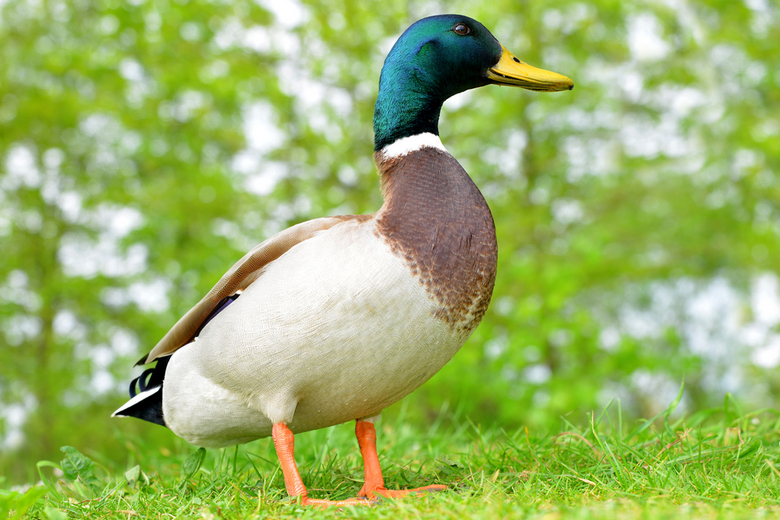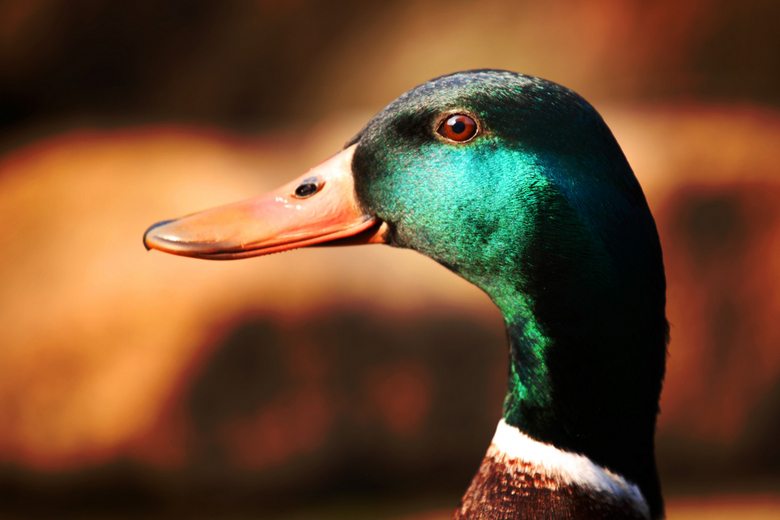It may sound crazy, but with Easter celebrations so near you could probably find yourself with a duckling at home courtesy of a very loving person! Truth to be told, not everyone is prepared to take care of a duck, much less to have it at home indefinitely.
Lame isn’t it? We have you covered. Here at Pet Comments, we’ll share some basic info about domestic ducks you definitely need before thanking your lovely friend for such a thoughtful gift.

The first thing you need to know is that “Duck” is the common name that many species in the Anatidae waterfowl family have and this includes swans and geese. Like other kinds of animals, there are domestic ducks and wild ducks. In this article we will focus on domestic duck breeds, please take into account some things could change from one breed to another. In case you are actually interested in the idea of a duck as a pet, inform yourself about the particular breed that calls your attention.
Basic Information
Nearly all varieties of domestic ducks come from the mallard (Anas platyrhynchos). Ducks are considered to be aquatic birds and can often be found close to fresh water like ponds, streams, and rivers. Size and plumage change from one species to another, yet there are distinctive features every single duck species has.
Ducks are relatively long-necked, but not nearly as much as geese and swans. Their wings are also shorter in comparison to the swan and geese wings, yet strong. Their body is elongated and broad with webbed feet, especially made for swimming. The bill is of an orange color, usually elongated and flat. Lamellae can be found inside the duck’s bill, these are comb-like structures that may appear like serrated teeth.
Duck’s life span depends on the circumstances, but it is known that they can live from 2 to 20 years, and even more, if given the chance. Fun fact! The most mature mallard duck lived to count 27 years.
Behavior
Here is the life-saving info you need. Ducklings (as tiny ducks are called) imprint on you as soon as they see you. In normal circumstances, the first thing a duckling would see is their mommy-duck and brothers and sisters. Since you will be the first thing a young duckling will see, be aware that your duckling will follow you as its momma. It sounds cute, but this implicates a change in your life routine; if your duck imprints on you it will follow you everywhere, like EVERYWHERE. Like a child, it will want to be with you all the time, and if you are planning to keep your duck outdoors this will strongly affect your duck. A way to solve this is to have a second duckling to keep each other company, as a lonely duck is a sad duck that won’t last long.
In matters of love, the male duck (called a “drake”) will shake its head and tail while he keeps his breast above the water to woo the female, also called a “hen”. Splashing water at the female and swimming with outstretched wings are also classic “flirty” behaviors. Mating for ducks is far from love though, if there are many drakes around they will either compete or cooperate to rape a hen. Fortunately, the female has a way of protecting herself from unwanted insemination. Due to the drakes’ territorial and violent mating tendencies, many choose to have only one or fewer in comparison to hens.
Health Issues
Like people (me, for example) ducks need to have water available at the same time they eat. While eating they will take a “mouthful” of food and dunk it in the water, repeating the process till they feel satisfied. As messy as this may be, ducks need to dip their food in water in order to digest it better; if not, you will have a much-asphyxiated duck.
Different types of food are acceptable for ducks like fish, insects, small amphibians, worms, grass (be careful with poisonous plants!) and small mollusks. Surpassingly enough, bread is not really good for a duck's digestion according to a British newspaper (so stop throwing bread to wild ducks!).
Ducks are prone to a number of diseases, so keeping an appropriate vaccine control and providing a quality diet, clean water, and good and clean housing will keep your duck happy and healthy. If housing a duck or numerous ducks has become your ultimate goal, acquaint yourself with an avian veterinarian of all the diseases your pet duck can catch and ways of preventing them.
Fun Facts
Wide Variety
Did you know there are more than 40 breeds of domestic ducks? The Pekin duck is the most popular one being the choice of numerous farmers for their eggs and meat.
Cold-proof Feet
Ducks have an extraordinary circulatory system that allows them to swim in cold water. This system permits both warm and cold blood to exchange heat, so the warm blood coming from the body “warms” the cold blood from the feet.
Water-proof Feathers
Near the duck’s tail is a gland called a “Preen gland” that secretes oil the duck uses to cover its feathers, making itself “water-proof”.
Ladies are the Noisiest
Well, yes female ducks or hens happen to be quite vocal in comparison to drakes, as drakes are more about muffled calls but are mostly quiet.
Ducklings are Born Ready!
Ducklings are born with their eyes open and are not fully dependent on their mother for food. Therefore, baby ducks are ready to leave the nest in very little time.
“Mister Worldwide”
Different species of ducks exist all over the globe on every continent, with Antarctica being the only exception. Chances are, wherever you are if you want a duck you can find one!

Interesting! But Do They Make Good Pets?
Here comes the difficult part. If a pet duck will be a good addition to your home will totally depend on your circumstances and your commitment to take care of the duck. As pets, ducks can be very emotional and intelligent animals, and they love to play and snuggle with their owners. Still, ducks are not to be kept indoors all the time.
They are overly social animals that need to stay with company, so if you can’t spare time with your duck is best to have a second one. A common mistake people make often is to free ducks in the wild when they are just big enough. This is a death sentence since the duck has not learned to live in the wild. The most thoughtful thing to do if you are sure you won’t be able to take care of the duck for the next 20 years is to simply not accept it or don’t buy it.
Pros of Having a Duck as a Pet
- They connect with you on a whole new level, almost as soulmates;
- They can make your day brighter with their energy and personality quirks;
- Forget about ticks or fleas;
- Large domestic ducks don’t fly, so you don’t have to worry for them to flying away;
- They are not odorous animals.
Cons of Having a Duck as a Pet
- They poop anywhere, so you have to be careful when the duck is inside your house (this can be solved with special diapers for ducks);
- They need constant company;
- If you live in an apartment, consider that they are NOT indoor pets;
- Salmonella disease is a reality with ducks; because of this extra precautions are advised.
We sincerely hope you found this information useful, keep this in mind and when your best friend comes to you on Easter holiday with an adorable duckling, you’ll know what to do.
Sources and further readings:
- Keeping Ducks as Pets Owner's Manual by Roland Ruthersdale (Author) ( Find This Book )
- Cornell Lab of Ornithology, Ducks Browse by Shape, All About Birds
- Wikipedia, Duck
- Cornell University, Duck Health Care